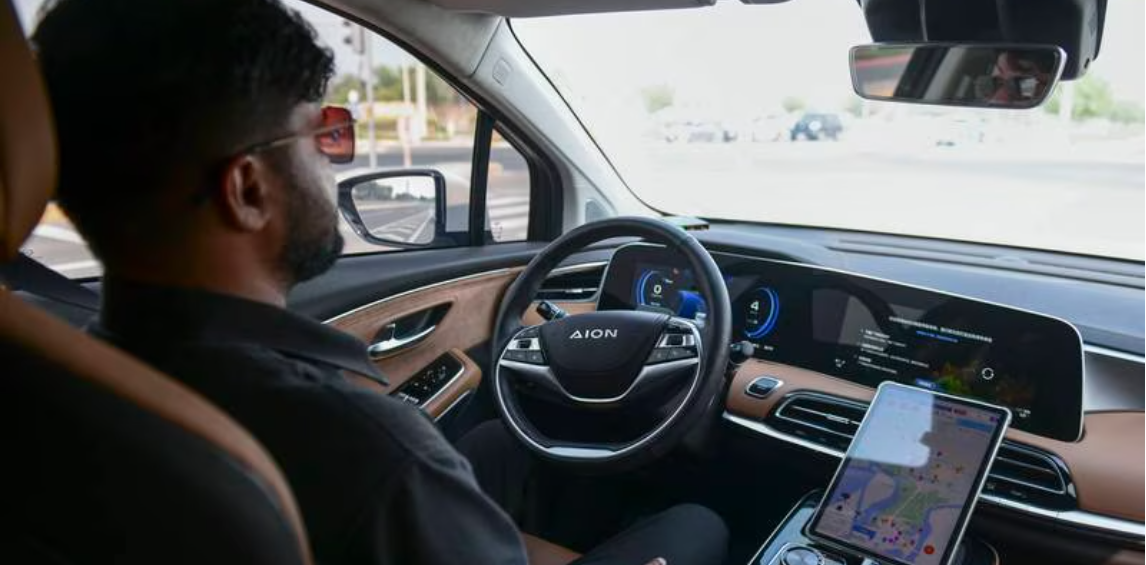The government and UAE-based Bayanat are collaborating on smart infrastructure.
An artificial intelligence-powered provider of geospatial data goods and services located in Abu Dhabi, Bayanat, anticipates that its self-driving car pilot program and recently announced satellite space deal will significantly advance the emirate’s goal of becoming a smart city.
According to Abdulla Al Shamsi, chief operating officer of Bayanat, the firm, which is majority owned by G42, is aiming to improve its capabilities as part of efforts to collaborate with the government to make sure Abu Dhabi is “first in the world” when it comes to smart city infrastructure.
The company is growing with a focus on establishing competence domestically thanks to its initial public offering on the Abu Dhabi Securities Exchange in October.
The facility itself was the first investment we made, so listing definitely enabled us to believe we had crossed the line and taken use of the chances.
A space initiative to develop national satellite earth observation and remote sensing capabilities within the UAE was launched in May by a collaboration between Bayanat, Yahsat, and Al Yah Satellite Communications of Abu Dhabi.
According to Mr. Al Shamsi, the program’s initial satellite launch is still scheduled for the first quarter of 2024.
The initial satellite won’t be produced locally. With our partner, it will be launched and constructed. From there, we are developing and preparing ourselves from a facility standpoint.
In order to deliver a reliable data stream, it plans to develop at least five SAR satellites in low Earth orbit.
SAR is an active sensing technology that produces high-resolution images by illuminating the Earth’s surface and measuring the reflected signal. SAR satellites, in contrast to conventional optical imaging satellites, may take pictures day or night, in any condition of weather or illumination.
The program offers “massive” commercial prospects.
We specialize in geospatial space, but we also specialize in smart mobility and smart cities, so we will now investigate that angle as well. Having that data source, whether it be from aerial sensing devices or remote sensing, would undoubtedly help us create additional goods,”
SAR will aid in the discovery of events like land deformation, which in the past would have required the assistance of an inspector, or an oil spill at sea, enabling authorities to react quickly and limit damage.
Urban planning will also be significantly impacted by it.
“SAR will aid in better comprehension and more effective planning, and [urban planners] will make greater and broader use of the data,”
According to the International Institute for Management Development’s (IMD) Smart City Index for 2023 from Switzerland, Abu Dhabi this year kept its status as the most intelligent city in the Middle East and North Africa. This was made possible by its digital-first initiatives.
The index, which was published in may, ranked the capital of the UAE 13rd globally.
According to, chairman of the emirate’s Department of Municipalities and Transport (DMT), Abu Dhabi’s rise to prominence as the region’s leader is the result of initiatives centered on technologies like artificial intelligence and the internet of things, as well as the development of smart city initiatives across society, services, and the economy.
According to Mr. Al Shamsi, Bayanat, which is presently testing autonomous transportation in Abu Dhabi alongside the DMT and the Integrated Transport Centre, plans to quickly advance to the next round of trials.
The business collaborates with companies like China’s WeRide, which last month acquired the UAE’s first preliminary license to drive autonomous vehicles.
Everyone is attempting to use this new technology wisely because it is so new. In order to “… build the trust and the confidence with our partners on the potential of those self-driving cars that can operate freely on our roads,” Mr. Al Shamsi continued, “we are taking the additional measure [of a safety driver] at this moment.
The experiments, which began last year, have involved thousands of individuals, and the robotaxis and robo-buses are already running on Yas Island and Saadiyat Island.
The testing have given Bayanat a wealth of information and enabled it to make changes to the operating system as it strives to comprehend upcoming laws before to a significant fleet increase.
We are currently figuring out how to expand the fleet and how to deploy the first autonomous car without the safety officer, he added.
“To ensure that we are keeping it contained, we will test that in a geofencing configuration. Although our previous test was successful, the distance it could travel was somewhat constrained. In the near future, we intend to expand it.
Additionally, the technology at this point is still on the “higher side” in terms of expense.
According to Mr. Al Shamsi, “We are working with our partners to find answers and how we may truly render that commercially viable for the future.”
We are quite enthusiastic about this.
While Bayanat intends to expand across the region and globally with its smart mobility strategy, “we will go when we have the full consultancy service and also when we are providing the technology and implementing this on a wider range”, he said.
Looking ahead, the company will continue focusing on organic and inorganic growth within its key verticals of AI and geospatial to ensure its “sustainable growth and business”, he added

